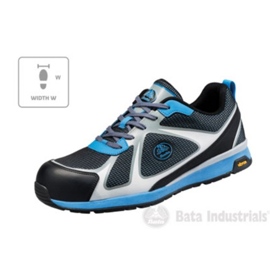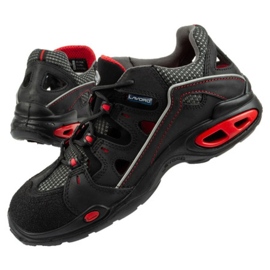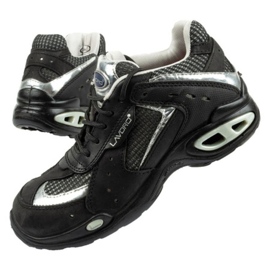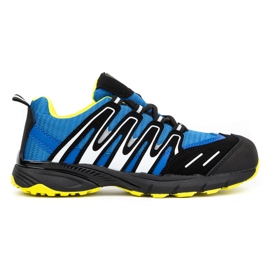Synthetic work shoes - reliability and convenience in one
Introduction to working shoes made of synthetic material
Synthetic work shoes are a popular choice for employees of many industries, from construction to gastronomy. They are characterized by lightness, endurance and resistance to external factors. Compared to leather footwear, the synthetic offers ease of maintaining cleanliness and quick drying, which is crucial during intensive working days. In this article, we will look at the most important features, advantages and at the same time challenges related to the use of working shoes made of synthetic material.
Types of synthetic materials used in the production of working shoes
In the production of working shoes, various types of synthetics such as nylon, polyurethane, EVA and Kevlar are most often used. Nylon is light and durable, provides good breathability. Polyurethane layers increase resistance to abrasion and water, and EVA is used for soles, ensuring depreciation and lightness. Kevlar adds resistance to intersections and tears, which is crucial in demanding conditions. The choice of the right type of material depends on the specifics of work and the expected properties of footwear.
The benefits of choosing work shoes from the synthetic material
Synthetics shoes offer numerous benefits, including lightness, which noticeably reduces the fatigue of foot during the long day of work. They are also waterproof or resistant to oils and chemicals, which significantly increases the safety and hygiene of work. Importantly, synthetic materials can be easily cared for - it is enough to clean regularly to make the shoes look like new for a long time. In addition, the synthetic can be formed in various shapes and patterns, allowing the creation of shoes with a variety of design.
Safety and standards for working shoes from synthetics
When buying work shoes from synthetic material, it is key to checking the compliance with safety standards, such as EN ISO 20345, which include protection against puncture, slip, impact or high temperature. Synthetic shoes are often equipped with anti -shot inserts, finger protection, as well as non -slip soles, which increases the safety of the user. Properly certified footwear is a guarantee that it meets the requirements of industry standards and provides adequate protection into jobs.
Comfort of using work shoes from synthetics
Comfort is one of the most important features of work footwear. Synthetics shoes often have built -in Foam Memory inserts, ensuring optimal fit to the shape of the foot, which reduces the risk of imprints and pain. Good ventilation thanks to the use of breathable materials minimizes excessive feet sweating. In addition, lightweight constructions and flexibility of synthetic materials allow for natural movement of the feet, which is especially important during long standing work.
Caring and care of working shoes made of synthetic material
Synthetic work shoes are easy to clean. It is recommended to regularly clean them with a soft cloth moistened with water with a mild detergent. Avoid the use of solvents that can damage the material. After cleaning, it is worth drying the footwear in a ventilated place, away from the direct sun to avoid deformations. In addition, in order to maintain flexibility, special impregnants for synthetic materials can be used.
Alternatives for synthetic shoes and when to choose them
Although synthetic shoes have many advantages, in some applications leather or other materials can be a better choice. For example, in work requiring high abrasion resistance or long -term protection against water and chemicals, specialized footwear may be needed. It is worth remembering that the synthetic is often more beneficial in conditions requiring lightness and easy care. The choice of appropriate footwear depends on the specifics of the workplace and the individual needs of the user.
Summary: Is it worth choosing work shoes from synthetic material?
Synthetic work shoes are a great solution for employees who value lightness, durability and ease of care. Their appropriate selection and certification guarantee safety and comfort during duties. It is worth investing in synthetics footwear, especially when it is required to resist water, chemicals and abrasion, while at the same time wearing comfort all day. A thoughtful choice that meets safety standards will make the work not only safe, but also more effective and more pleasant.





















